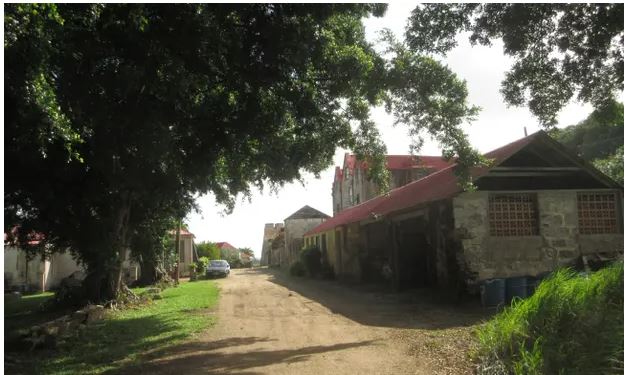Reparatory Justice in Barbados: Examining the Controversy Surrounding Sir Richard Drax's Compensation

April 24, 2024
Advocate for reparatory justice with a deep understanding of historical injustices, expressing disappointment in recent developments regarding compensation for ill-gotten gains in Barbados. Enables critical reflection on the relationship between law and justice.
As an ardent supporter of reparatory justice and self-repair for over three decades, and one who has a fairly intimate relationship with the national, regional and international call for reparatory justice with reference to the centuries of social injustice and crimes against humanity inflicted upon Africans and African-descended people, I was indeed shocked and let down when I learned that the Government of Barbados, a government that had been championing the cause of reparations for more than a decade now, had decided to relieve Sir Richard Drax of the burden of the ill-gotten gains he inherited by compensating him using the money of the descendants of the very people who suffered at the hands of his ancestors.
I was equally horrified to hear one whom I consider a true champion of the people, a man whose voice has been fearlessly raised in the interest of justice time and time again in Barbados, suggest that the government was merely following the law, doing what is right according to the law. He also suggested that those who advocate the cause of reparatory justice are simply being emotive on this matter, because the law is the law.
It would be great if justice and law were inseparably bound to each other, but we know this is not so. Law, according to the Legal Information Institute of Cornell University, refers to a “system of rules that regulate the conduct of a community and is often enforced by a controlling authority through penalties.” Whereas justice, according to the Oxford English dictionary, is the “maintenance of what is just or right by the exercise of authority or power; assignment of deserved reward or punishment; giving of due deserts.” There may be “corrective justice, distributive justice, indifferent justice, poetic justice, poetical justice, restorative justice, rough justice, social justice, etc.”
The colonisation of the Americas, Africa and Asia, and the accompanying chattel slavery inflicted upon millions of African and African-descended people for centuries, the greatest crime and injustice committed against humanity in history, were lawful. Justice is not always in harmony with the law, but it is always about what is right.
Using the taxpayers’ money to again compensate a slave owning family may be lawful, but it is wrong, it is a travesty of justice and a slap in the face of reparatory justice by the government of Barbados. I say “again compensate” because the Drax family was compensated for the loss of their so-called property at emancipation, human beings, the ancestors of the very people who are now paying the Drax family for the land this time – land that enslaved Africans were forced by law to work for free. There is that word ‘law’ again. African people who by law were seen as sub-human. African people who had little to no rights under the law.
What jumps out at me here, too, is the need for self-repair; the need for African-descended Barbadians to take the time to inform themselves about the practices involved in chattel slavery and to try to understand the damage done to them by the institution of slavery.
The effects of slavery did not stop at emancipation. Neither did the impact of colonisation end at independence or republicanism. There is much work to be done because no informed self-respecting Black person of integrity would support or justify the government of Barbados purchasing Drax Hall or any part thereof from the Drax family. It is a form of mental illness.
Anthony Reid


